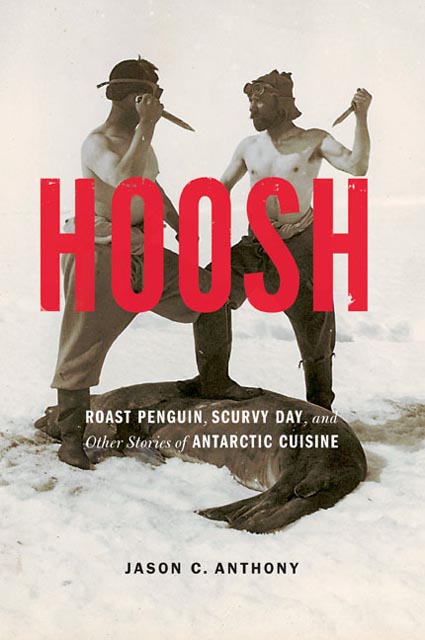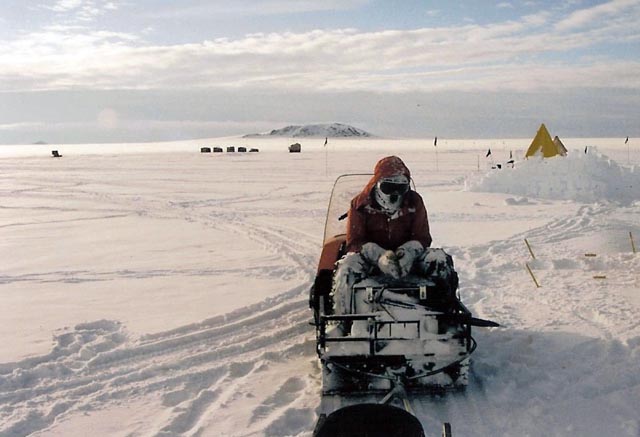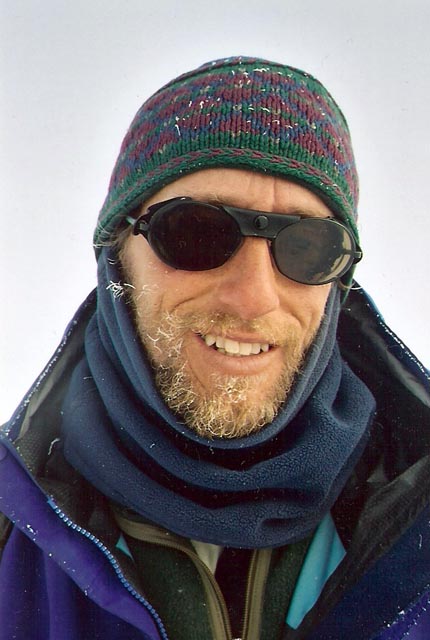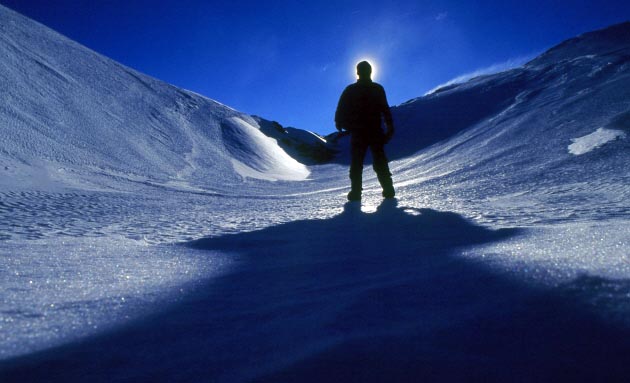|
From the gutFormer USAP participant writes book about history of food in AntarcticaPosted December 14, 2012
The canon of Antarctic history is by no means small, especially given the relatively brief span of time that humans have recorded their expeditions and discoveries on that remote, cold place. Yet author Jason Anthony A veteran of eight summer seasons in the U.S. Antarctic Program (USAP) A recent review in the New York Times said the book’s appeal, in part, is due to Anthony being “a fine, visceral writer and a witty observer. He paints his cast of questers with a Monty-Pythonesque brush, but balances the telling with a refusal to sneer or giggle. He demonstrates genuine respect, compassion and a kind of hopeless love for his quixotic subjects and their grandiose, miserable hungers.” Anthony answered a few questions by e-mail from The Antarctic Sun about Hoosh. 1. What interested you about writing a book about the history and culture of food in Antarctica? In retrospect, it makes perfect sense, given how food dominates our lives even today in the U.S. Antarctic Program. Years ago, in the midst of writing a book’s worth of other Antarctic stuff, lyrical landscape description that became a whole slew of essays I would later publish in literary magazines, I procrastinated by writing an odd little essay called Hoosh, with the joke of “Antarctic cuisine” as its concept. It was very different from anything else I’d written, and it just popped out. I had no idea where to publish something like that, so I sat on it for several years until I noticed a little literary food magazine out of NYC called Alimentum. I dusted Hoosh off, sent it off and was happy it found a home. And that was that; I’ve had several ideas for Antarctic books, but certainly never considered expanding Hoosh ... Until an editor at University of Nebraska Press contacted me with exactly that idea. It took me a while to see that the book version would expand beyond a few stories to address Antarctic history and culture comprehensively. As you say, food provides a really relevant lens through which to understand Antarctica, past and present. 2. There are a lot of great stories from the Heroic Age of Antarctic Exploration that you relate in the book. Do you have a personal favorite? If so, what is it and why does it resonate for you? Anything from later expeditions? I was interested to learn about Adm. Byrd’s food travails during his solitary winter. It’s really amazing he didn’t die. 
Jason Anthony's book covers the history of food in Antarctica from the early explorers to the present day.
Hard question. I went deep into every story, so I feel connected to each one. I loved retelling the familiar stories (Shackleton, Scott, Amundsen) with a different focus, and I loved being able to articulate the lesser-known tales (the Swedes in 1901, for example, or the expeditions of Jean-Baptiste Charcot), too. I suppose, though, that the Northern Party story really resonates, not just because it’s an insanely fascinating tale of six guys hibernating in an ice cave, but because the story is so intimate, so personal. You don’t get much of that in the gussied-up depictions of Antarctic life, past or present. As for later expeditions, I was really drawn both to Byrd’s bizarre experiment in his Advance Base and to John Rymill’s remarkable expedition. Byrd was flamboyant and large-scale, whereas Rymill put together an incredibly productive team that did their geographical work efficiently and on a modest budget. 3. What was the most challenging part of writing the book? I know you were attempting to finish Hoosh around the time that the National Science Foundation The information I needed … was important, but amounted to a few numbers. And luckily it came through before the book hit the finish line. The most challenging part of writing the book was doing the research on a shoestring. I couldn’t afford to go to the UK to cavort in the holdings of the Scott Polar Research Institute 4. You talk about your own experiences around the modern Antarctic food culture, particularly your season as part of a two-person field camp on the Odell Glacier. My sense is that experience was a powerful one for you, and probably not just in a culinary sense. Aside from an appreciation for the creativity and courage involved in the early days of Antarctic gastronomy, what else did you learn from your experience in that remote field camp that you still think about today? I've written about the Odell experience elsewhere, particularly about the wisdom of setting up a camp on an incredibly windy blue ice glacier ... and about the quality and character of Julian Ridley, my friend on that adventure. He’s a great guy and was perfect company for that trip. Otherwise, what I still carry with me from the Odell is similar to what I carry from my other field camp work — an incredibly powerful memory of belonging/not belonging to the empty, beautiful landscape — except that at the Odell it was developed to a higher pitch after three months working and exploring the nearby glaciers and nunataks. 5. What was the best meal you ever had on the Ice? The worst? I’ve done a fair amount of backcountry travel — both hiking and canoeing — and have always had pretty basic food requirements. Gruel is OK with me, as long as it’s tasty gruel. As for the best meals, I’m sure that I had great entrees in the galley whose name I've long forgotten, and I’m tempted to say Thanksgiving dinner out at Siple Dome, but in the end the meals I remember most fondly are those I cooked in my dorm room with a friend or two keeping me company. Simple food, quiet life. As for the worst meal, I hearken immediately back to 1994, my first year, to some reluctantly cooked, disheartened tofu smothered in liquid smoke by a cook who resented anything that wasn’t meat. 6. Anything you’d like to add? Just that I hope your local readers in the USAP take a step back from the content of Hoosh and think about what kind of book they might want to write about Antarctica. Support staff have historically written very little of Antarctic literature. That was especially true in the heroic age, and has remained true through the Navy years and into recent decades. I'd love to see new voices rise out of different experiences of the ice. |



For USAP Participants |
For The Public |
For Researchers and EducatorsContact UsU.S. National Science FoundationOffice of Polar Programs Geosciences Directorate 2415 Eisenhower Avenue, Suite W7100 Alexandria, VA 22314 Sign up for the NSF Office of Polar Programs newsletter and events. Feedback Form |




